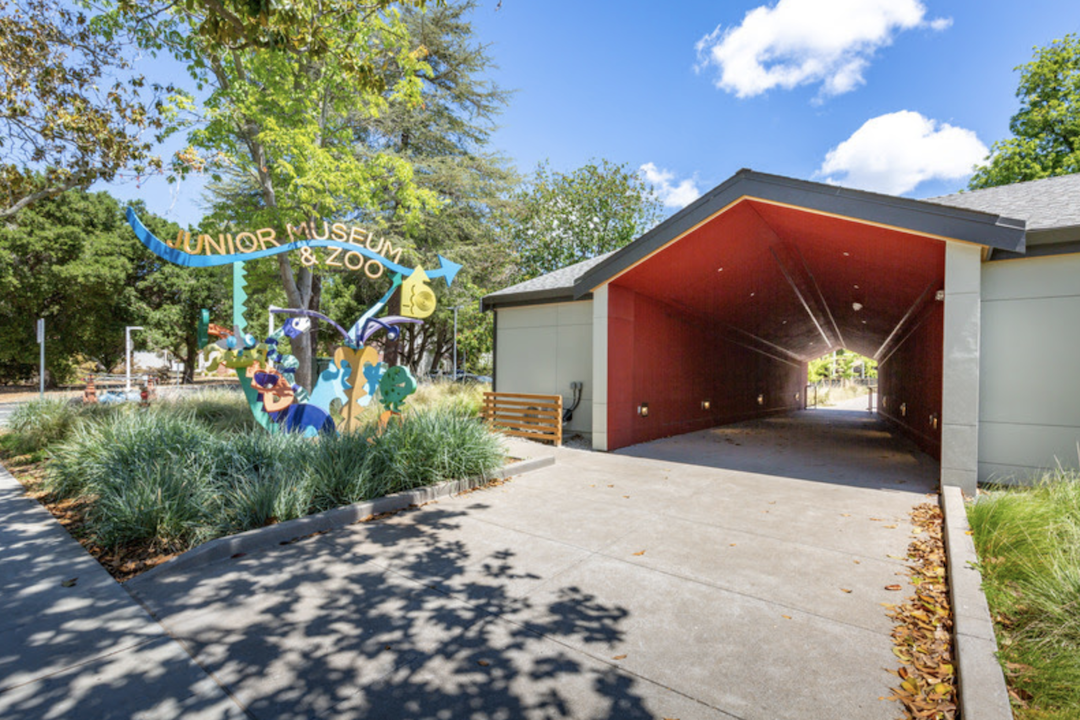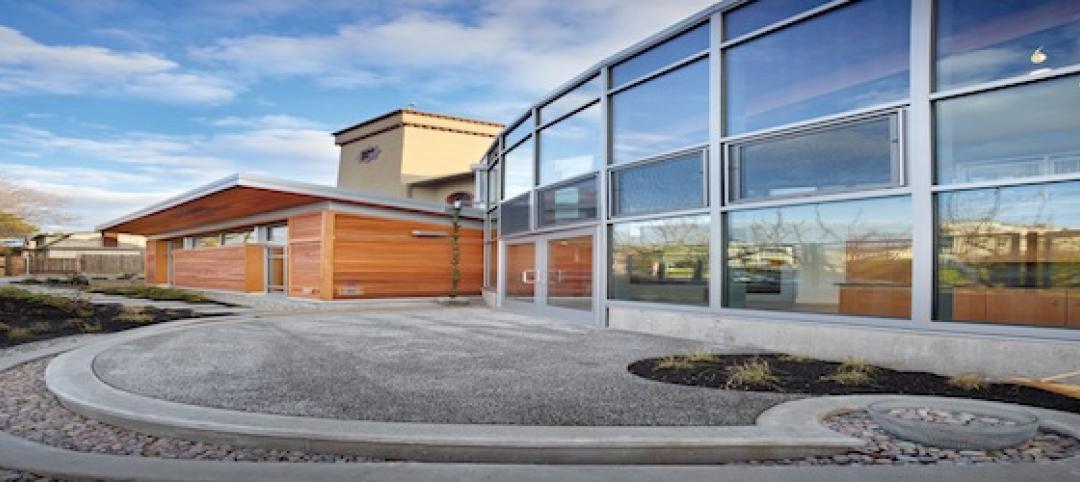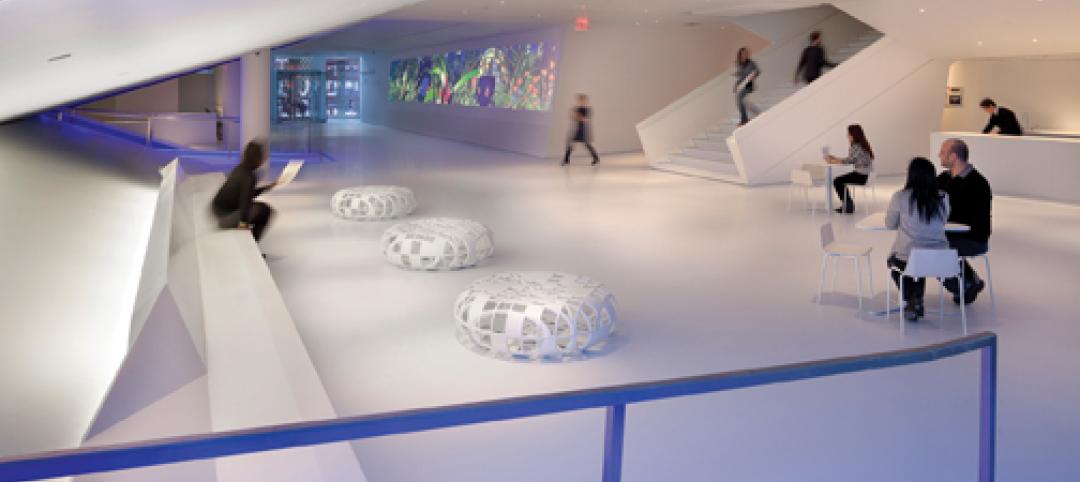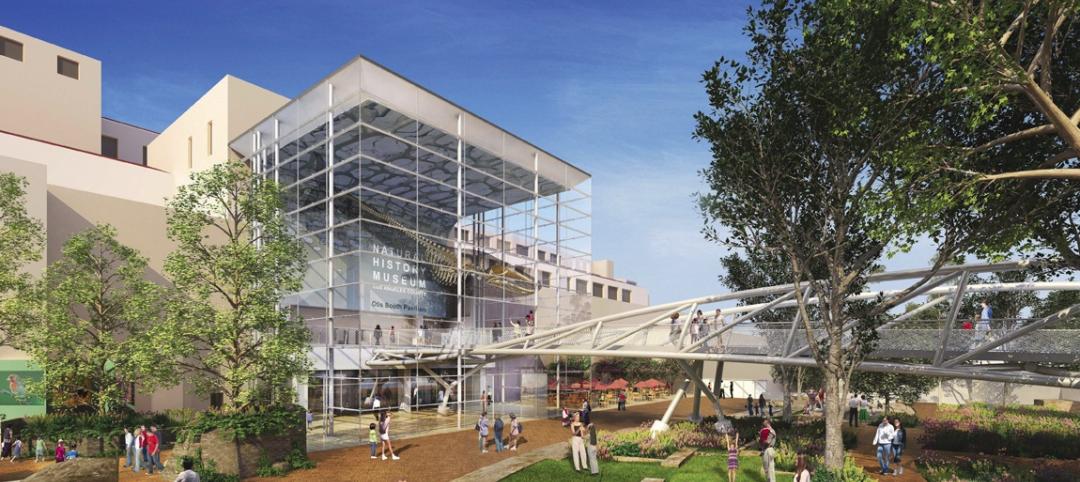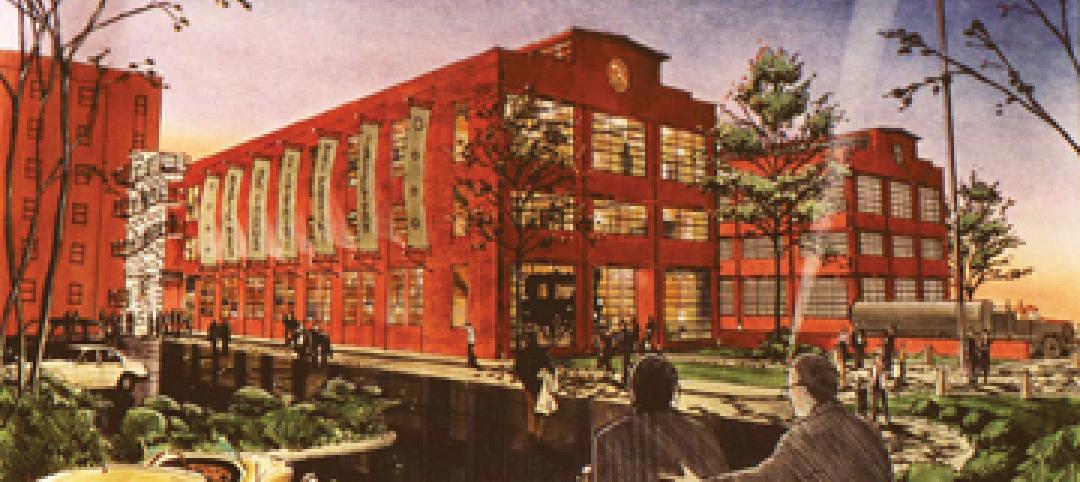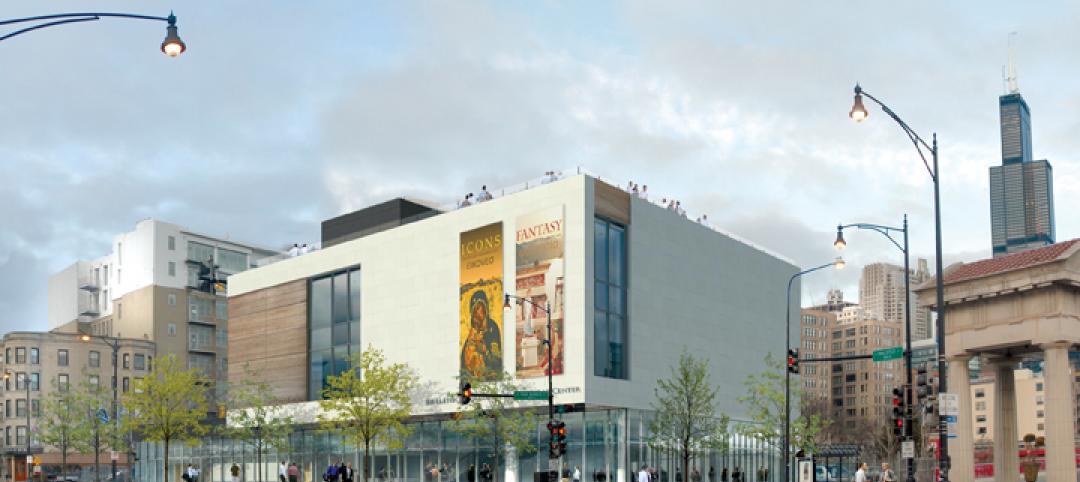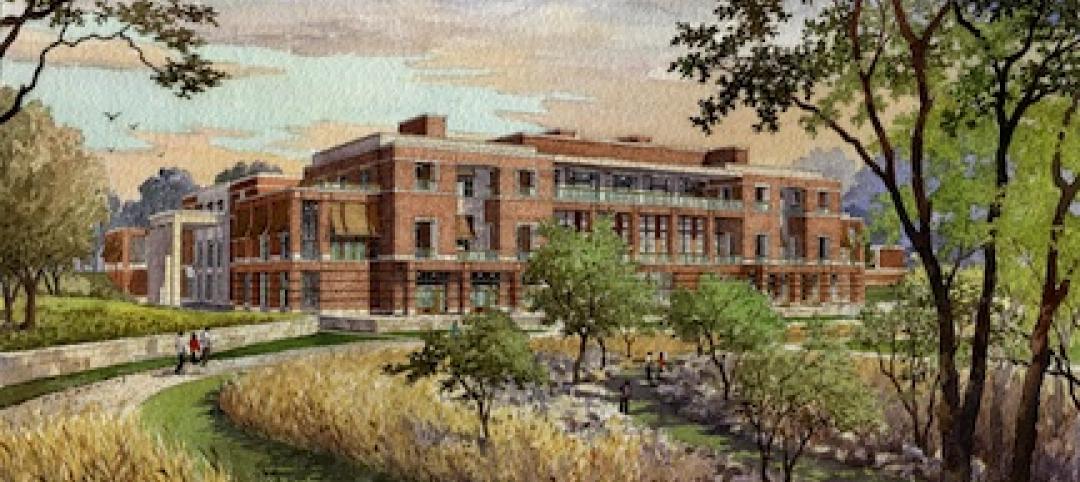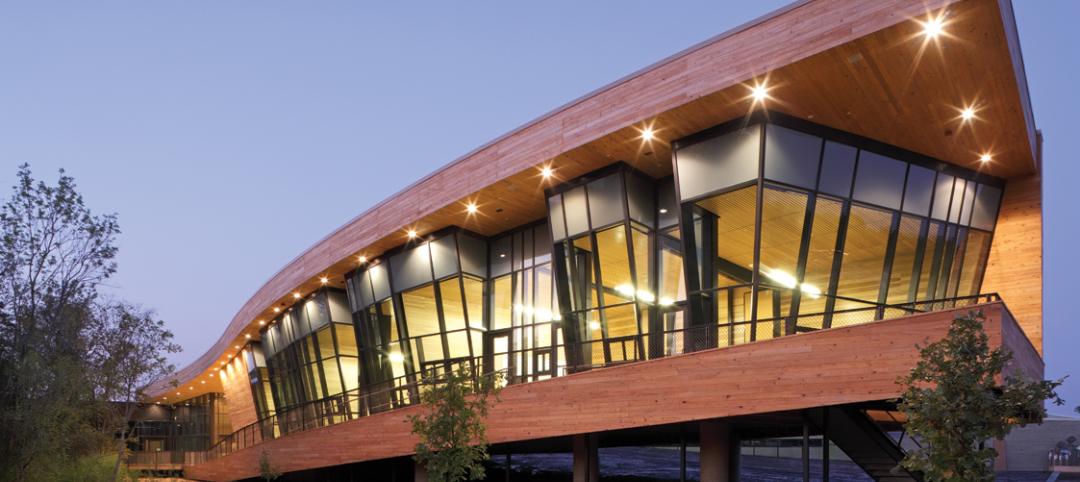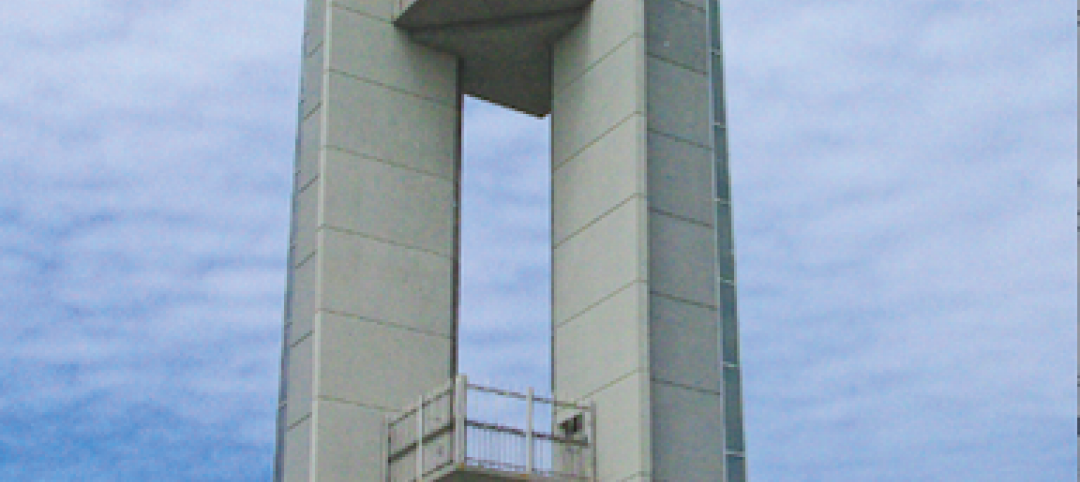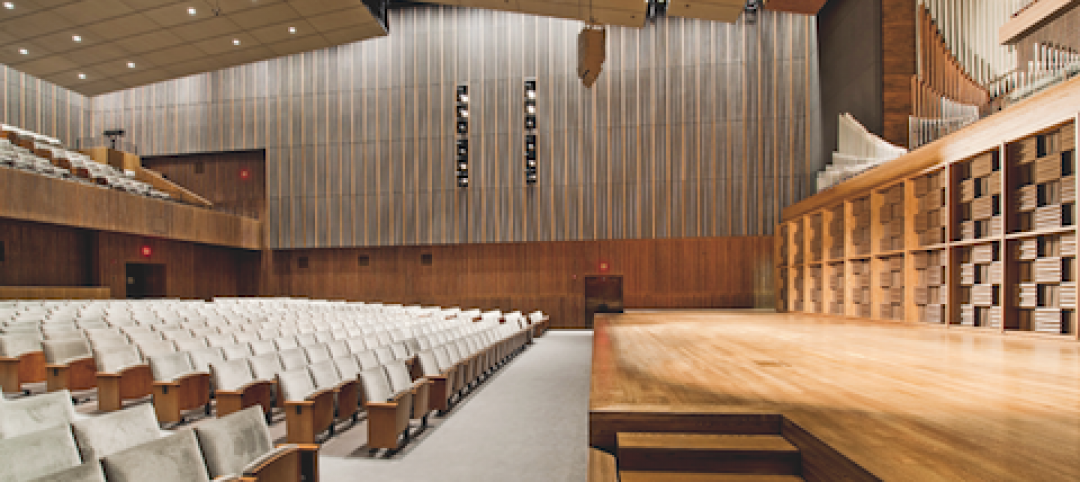The Palo Alto Junior Museum and Zoo (JMZ) has completed, CAW Architects recently announced. Located within the Palo Alto Arts and Recreation District, the project replaces the original JMZ facility. The project area spans three acres and includes a 15,200-sf building and the 18,800-sf zoo (including back-of-house spaces).
CAW Architects worked with Studio Hansen Roberts to design a new children’s museum and zoo that rethinks how to capture a child’s wonder and curiosity for the natural world and create interactive learning experiences throughout. Organized around an exhibit hall, education center, and outdoor zoo, the new design creates a strong visible presence through a large entrance porch and a variety of free outdoor exhibit spaces. The exhibit spaces extend into the adjacent surroundings and include the stump maze, the rainbow tunnel, and porch swings.
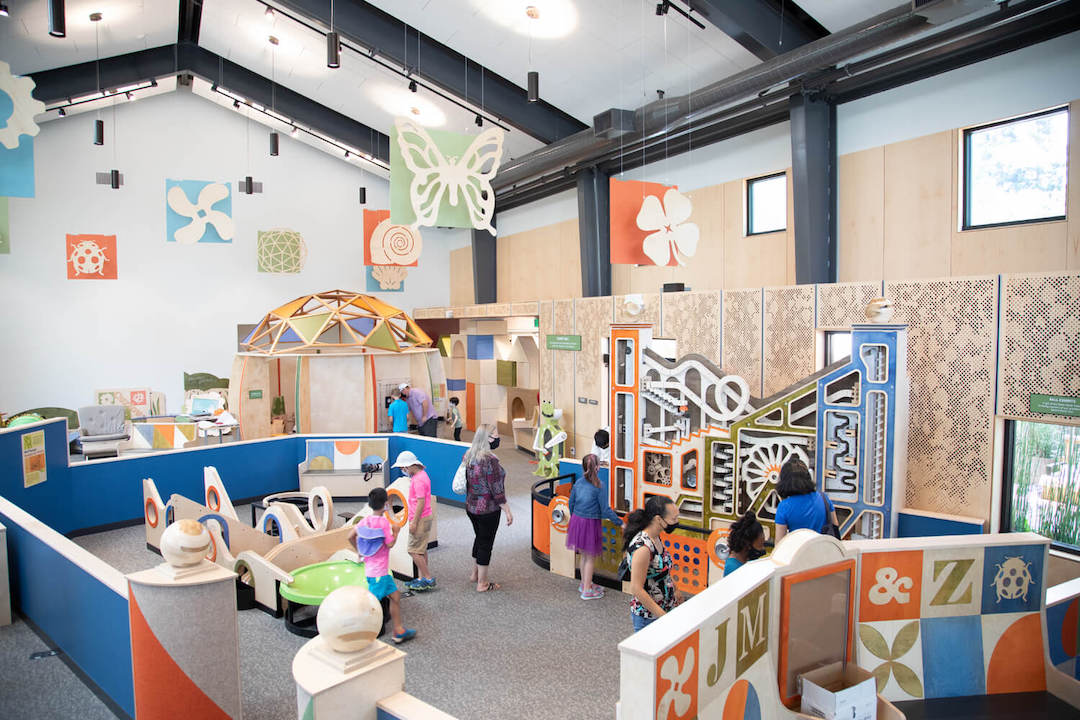
The building forms fit a residential and agrarian vernacular with simple clean forms and shed roofs, which echo the surrounding neighborhood. The building shapes fit in and around existing mature oaks and feature trees, where the buildings create theme-based outdoor courtyard spaces, such as the Jurassic courtyard, for specific educational opportunities.
The exhibit hall contains a variety of interactive and kinesthetic exhibits in which children can interact. Several large windows and skylights directly link the zoo with the exhibit hall, with some exhibits extending from the zoo directly into the museum.
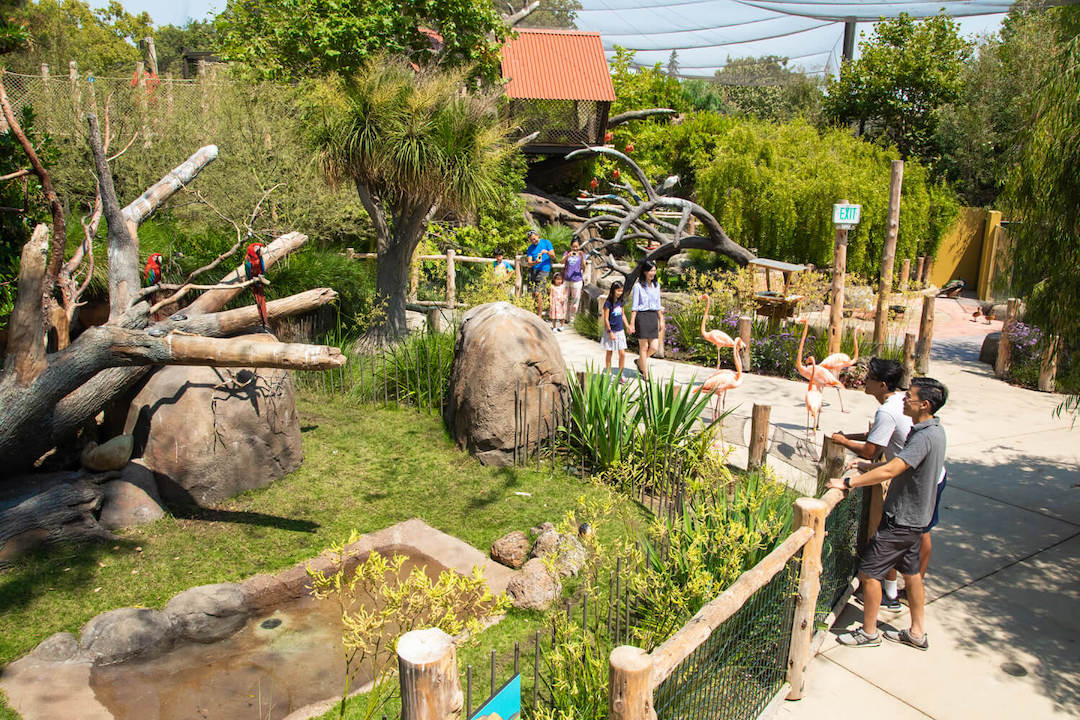
The entire zoo is designed as a large aviary, allowing a wide range of birds to directly interact with the children. The exhibits within the zoo are layered vertically to give kids an opportunity to view the natural environment from different vantage points. The design allows children to experience the natural environment of spaces below such as tree roots and water ponds, while also creating spaces above, for children to explore up in the central tree to then look down on the various zoo experiences. A tree house runs through the center of the zoo and connects all the spaces with rope bridges, ladders, net tubes, and platforms to create a play-based experience for children.
CAW Architects' work on the project included the site masterplan, including the museum, zoo, and education center to integrate it into the overall city complex; architectural design and interior design of the museum, education wing, and administrative support spaces; and site design including exhibit spaces around the museum exterior, zoo exhibit spaces, and zoo support spaces.
In addition to CAW Architects and Studio Hansen Roberts, the project team also included:
- Landscape Design: Vallier Design
- General Contractor: Vance Brown Builders
- Structural Engineer: Hohbach Lewin
- Specialized Structural Engineer: Coffman Engineers INC.
- Giotechnical Engineer: Silicon Valley Soil Engineering
- Civil Engineer: C2G
- Mechanical/Plumbing: ACCO Engineered Systems
- Electrical Engineer: H.A. Bowen Electric
- Project Arborist: HortScience, Inc.
Related Stories
| Sep 12, 2011
Living Buildings: Are AEC Firms up to the Challenge?
Modular Architecture > You’ve done a LEED Gold or two, maybe even a LEED Platinum. But are you and your firm ready to take on the Living Building Challenge? Think twice before you say yes.
| Apr 13, 2011
Expanded Museum of the Moving Image provides a treat for the eyes
The expansion and renovation of the Museum of the Moving Image in the Astoria section of Queens, N.Y., involved a complete redesign of its first floor and the construction of a three-story 47,000-sf addition.
| Apr 12, 2011
Entrance pavilion adds subtle style to Natural History Museum of Los Angeles
A $13 million gift from the Otis Booth Foundation is funding a new entrance pavilion at the Natural History Museum of Los Angeles County. CO Architects, Los Angeles, is designing the frameless structure with an energy-efficient curtain wall, vertical suspension rods, and horizontal knife plates to make it as transparent as possible.
| Jan 21, 2011
Sustainable history center exhibits Fort Ticonderoga’s storied past
Fort Ticonderoga, in Ticonderoga, N.Y., along Lake Champlain, dates to 1755 and was the site of battles in the French and Indian War and the American Revolution. The new $20.8 million, 15,000-sf Deborah Clarke Mars Education Center pays homage to the French magasin du Roi (the King’s warehouse) at the fort.
| Jan 19, 2011
Industrial history museum gets new home in steel plant
The National Museum of Industrial History recently renovated the exterior of a 1913 steel plant in Bethlehem, Pa., to house its new 40,000-sf exhibition space. The museum chose VOA Associates, which is headquartered in Chicago, to complete the design for the exhibit’s interior. The exhibit, which has views of five historic blast furnaces, will feature artifacts from the Smithsonian Institution to illustrate early industrial America.
| Jan 19, 2011
Museum design integrates Greek history and architecture
Construction is under way in Chicago on the National Hellenic Museum, the nation’s first museum devoted to Greek history and culture. RTKL designed the 40,000-sf limestone and glass building to include such historic references as the covered walkway of classical architecture and the natural wood accents of Byzantine monasteries. The museum will include a research library and oral history center, plus a 3,600-sf rooftop terrace featuring three gardens. The project seeks LEED Silver.
| Nov 23, 2010
The George W. Bush Presidential Center, which will house the former president’s library
The George W. Bush Presidential Center, which will house the former president’s library and museum, plus the Bush Institute, is aiming for LEED Platinum. The 226,565-sf center, located at Southern Methodist University, in Dallas, was designed by architect Robert A.M. Stern and landscape architect Michael Van Valkenburgh.
| Nov 2, 2010
Cypress Siding Helps Nature Center Look its Part
The Trinity River Audubon Center, which sits within a 6,000-acre forest just outside Dallas, utilizes sustainable materials that help the $12.5 million nature center fit its wooded setting and put it on a path to earning LEED Gold.
| Oct 13, 2010
Tower commemorates Lewis & Clark’s historic expedition
The $4.8 million Lewis and Clark Confluence Tower in Hartford, Ill., commemorates explorers Meriwether Lewis and William Clark at the point where their trek to the Pacific Ocean began—the confluence of the Mississippi and Missouri Rivers.
| Oct 12, 2010
Gartner Auditorium, Cleveland Museum of Art
27th Annual Reconstruction Awards—Silver Award. Gartner Auditorium was originally designed by Marcel Breuer and completed, in 1971, as part of his Education Wing at the Cleveland Museum of Art. Despite that lofty provenance, the Gartner was never a perfect music venue.


